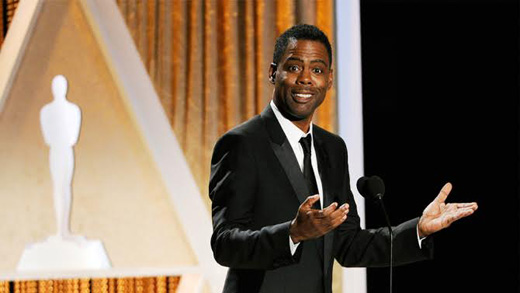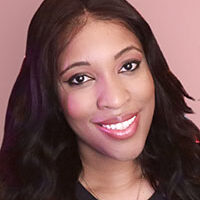
Activist communities on the Internet had prepared for it: as it turned out, the hashtag #OscarsSoWhite was buzzing the morning of Jan.14, as the Academy of Motion Picture Arts and Sciences announced the nominees for this year’s prized golden statue.
This marks the second year in a row where not one nominee in the four major acting categories (Best Actor, Best Actress, Best Supporting Actor, or Best Supporting Actress) is a person of color.
The hashtags #OscarsSoWhite and #OscarsStillSoWhite trended on Twitter after the nominations were announced as people from around the country weighed in on the lack of diversity in the 87th year of the prestigious awards ceremony.
The original creator of the hashtags, April Reign, who is managing editor of BroadwayBlack.com and an editor of NU Tribe Magazine, spoke to the LA Times about her reasoning for creating the popular trend topics last year. She said, “It happened because I was disappointed once again in the lack of diversity and inclusion with respect to the nominees. And we see, despite all of the talk since last year, nothing has changed, and it looks even worse this year.”
Oscar nominations are determined by votes of the estimated 6,000 members of the Academy of Motion Picture Arts and Sciences. A survey conducted by the L.A. Times in 2014 of the members of the academy found that 94 percent were white, 77 percent were men, 2 percent were Black, 2 percent were Latino, and less than 5 percent were Asian or Native. (The Academy itself does not release demographic) breakdowns of its membership.)
One could argue that these demographics may affect which films and performances get nominated. The president of the Academy, Cheryl Boone Isaacs (who is African-American), responded to the criticism on the racial, and gender, makeup of the Academy members by announcing a diversity campaign in membership last June.
Isaacs stated that the 322 new members invited to join were truly diverse. Some of those new members included Mexican-Kenyan actress LupitaNyong’o, British actor David Oyelowo, and African-American comedian Kevin Hart. Directors outside of the U.S such as Argentina’s Damian Szifron and Poland’s PawelPawlikowski, African-American musicians John Legend and Common, South Korean actor Choi Min-sik, and British actresses GuguMbatha-Raw and Felicity Jones were also extended invitations to join.
Along with this, Isaacs announced this past November a five-year program to encourage top studio executives to “expand their thinking when hiring, mentoring and encouraging new talent.” Isaacs said: “[The academy] has no power over Hollywood [and] nothing to do with hiring,” but hoped to “widen their normal stream of thought.” Yet it would appear from the recent nominations that the stream of thought on diversity is still narrow.
The Academy Awards is a ceremony to celebrate the movie industry, yet the nominations seem to ignore representation of a significant portion of the population that financially supports it. As reported by the Washington Post, although minorities make up 37 percent of the U.S. population, they were responsible for 46 percent of the $1.2 billion in movie tickets sold in the United States last year.
And although some films nominated this year have diverse casts, in many of these cases the nominated person associated with the film is white. As Trey Taylor, a regular writer for Vogue, The Atlantic, and Interview commented on Twitter, “It’s telling in a film directed by a black dude with five black dudes in leads, they nominate two white scriptwriters.” Taylor is referring to the film Straight Outta Compton, a biopic about the African American rap group NWA. The high grossing and critically acclaimed movie, that included a black director, F. Gary Gray, and black lead actors, earned an Oscar nomination–but for its three white screenwriters.
Similarly, white actor Sylvester Stallone was nominated for his performance in the high grossing film “Creed,” but the film’s black writer-director, Ryan Coogler, and black star, Michael B. Jordan, were not. Darnell Hunt, director of UCLA’s Ralph J. Bunche Center for African American Studies stated to the press, “The Academy is white and male, so we have a taste culture that’s only going to recognize certain types of projects.”
Last year a boycott of the Oscars was called for as many, fed up with the lack of people of color nominated, took to Twitter to live tweet about other shows they were watching during the awards ceremony’s broadcast that night.
Ratings for the ceremony were down 16 percent, its lowest ratings in six years. Something similar may occur again, as April Reign concluded in her L.A. Times interview about the push to keep the pressure on Hollywood for more diversity: “The point of #OscarsSoWhite is not that there needs to be a person of color in every category. The point is we need to make sure that the best and brightest are given the opportunity to audition and write and direct and then make the [nomination] decision with respect to the best performances.”
A full list of the Academy nominations can be found here.

MOST POPULAR TODAY

High Court essentially bans demonstrations, freedom of assembly in Deep South

Zionist organizations leading campaign to stop ceasefire resolutions in D.C. area

U.S. imperialism’s ‘ironclad’ support for Israel increases fascist danger at home


UN warns that Israel is still blocking humanitarian aid to Gaza






Comments